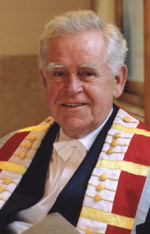


But Magnusson never mentions Scotland's central role in the Industrial Revolution, when Glasgow emerged as a global industrial center ("industry" isn't even listed in the index). We're treated to a dozen pages about the Battle of Falkirk (wherein England's implacable King Edward I defeated William Wallace in 1298) and its aftermath. What of Scotland's amazing (for its size) achievements during the European Enlightenment? Adam Smith is mentioned once, the seminal philosopher David Hume twice in passing. (1827–1829), Magnusson's ( The Vikings) narrative purports to describe Scotland from the Stone Age to the present. Loosely patterned after Sir Walter Scott's Tales of a Grandfather It is essential reading for anyone with an interest in Scotland at this pivotal moment in its history.This overly heroic history of Scotland focuses almost exclusively on royalty and warfare. Incorporating the findings of many leading modern historians, ‘Scotland: The Story of a Nation’ casts the nation’s history in a fascinating new light. Where did the ‘Scots’ come from? What is the truth about such historical figures as Macbeth, William Wallace and Robert Bruce? What was the significance of the tragic reign of Mary Queen of Scots? What was the impact of Bonnie Prince Charlie and his brutal defeat at Culloden? In investigating the many questions raised by the nation’s turbulent and often poignant past, he gives full weight to the living treasure of local legends and tradition which he believes has as much resonance as academic analysis. Like Scott, Magnus Magnusson is a master story teller.

Magnus Magnusson’s starting point is Sir Walter Scott’s classic version of Scotland’s history, ‘Tales of a Grandfather’ (1827-29), which has moulded the views of generations of Scottish schoolchildren. This edition contains a limited number of illustrations. A timely and vivid look at Scotland’s long and difficult road to nationhood, re-exploring some cherished myths and unearthing a wealth of fascinating new detail.


 0 kommentar(er)
0 kommentar(er)
